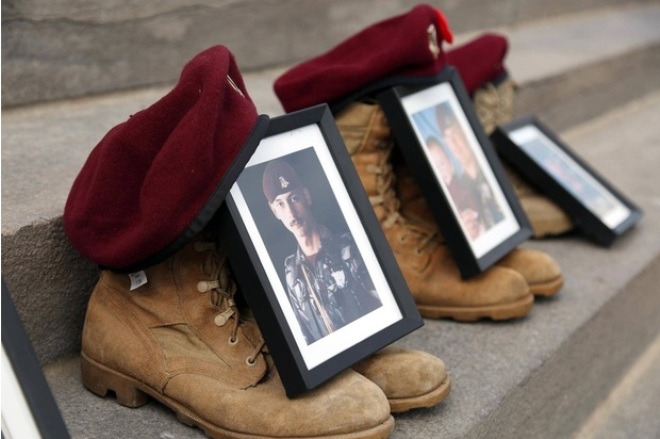
Wednesday November 22, 2017
The federal government and the pharmaceutical company that developed mefloquine are trying to shut down a lawsuit launched in 2001 on behalf of veterans who believe the anti-malaria drug they were forced to take while deployed to Somalia caused them irreversible brain damage.
The government and Hoffman-LaRoche argue there is a "substantial risk" that a fair trial would not be possible as a result of the time that has passed.
"The plaintiffs have not taken any steps in the case for 17 years and they now require leave of the court to take the next step, certification," which the government opposes, the Defence Department said in an e-mail on Nov. 16.
The case against Ottawa, Hoffman-LaRoche and Barry Armstrong, one of the doctors who was part of the ill-fated Somalia peacekeeping mission in the 1990s, was launched on behalf of Ronald Smith, a former member of the now-disbanded Canadian Airborne Regiment.
His lawyer, Wayne Stickland, will appear before an Ontario Superior Court judge in Mr. Smith's former hometown of North Bay on Dec. 8 to argue that time should not prevent certification as a class action.
"Mr. Smith has always wanted his day in court," Mr. Stickland said, "and that seems to be something that the government does not want to provide to him because of their procedural wrangling and their attempts to dismiss the motion."
The government argues that Mr. Smith and his lawyers have not provided a reasonable explanation for the 17-year delay.
Mr. Smith says the government owed a duty of care to all of the soldiers it sent on the mission.
Instead, he says in his statement of claim, the military forced them to take mefloquine and ignored the rules of the clinical trial, which said the soldiers must provide consent and be advised of the risks, be told to abstain from alcohol, be monitored for adverse reactions and be treated for any side effects in a timely manner, among other things.
Two of the soldiers on that mission were charged in the beating death of a Somali teen, and many others complained of alarming dreams, hallucinations and depression.
After the mission, Dr. Armstrong was among those who expressed concerns publicly about the anti-malarial drug. In a postdeployment analysis, he said the failure of the United Nations forces in Somalia was "rather exceptional," and "I believe that a simple reason may exist. Canadian and American troops may have been impaired by the use of mefloquine."
Mr. Smith's case was launched in 2001 at a time when less evidence of the drug's harmful effects was available. Little happened in the intervening years except for discussion among lawyers about who was prepared to take the matter to court.
In 2016, Health Canada updated the warning labels for mefloquine to emphasize that certain side effects can persist for months or years after use of the drug is discontinued and may be permanent in some patients. The department said the symptoms reported include anxiety, paranoia, depression, hallucinations, psychotic behaviour and, in rare cases, thoughts of suicide.
The Canadian military conducted a subsequent review of the medical literature and concluded there is no evidence that the drug causes long-lasting problems.
Even so, it now recommends that alternatives be considered the preferred options for soldiers who deploy to countries where malaria is a risk. That aligns with policies in Australia, the United States and Britain that mefloquine is a drug of last resort for military use. Germany has banned the drug outright for its soldiers.
Last year, as concerns about mefloquine were making the news, including multiple stories in The Globe and Mail, Mr. Stickland reactivated the case. Between 60 and 70 Somalia veterans since have contacted his office to indicate that they wish to be part of it.
In their motion to have the case thrown out, Justice Department lawyers point out that, under the Rules of Civil Procedure, a case will be dismissed if a trial is not scheduled within five years after the action is commenced. They also reference the Class Proceedings Act, which says an application for class-action certification must be made within 90 days of parties providing a statement of defence.